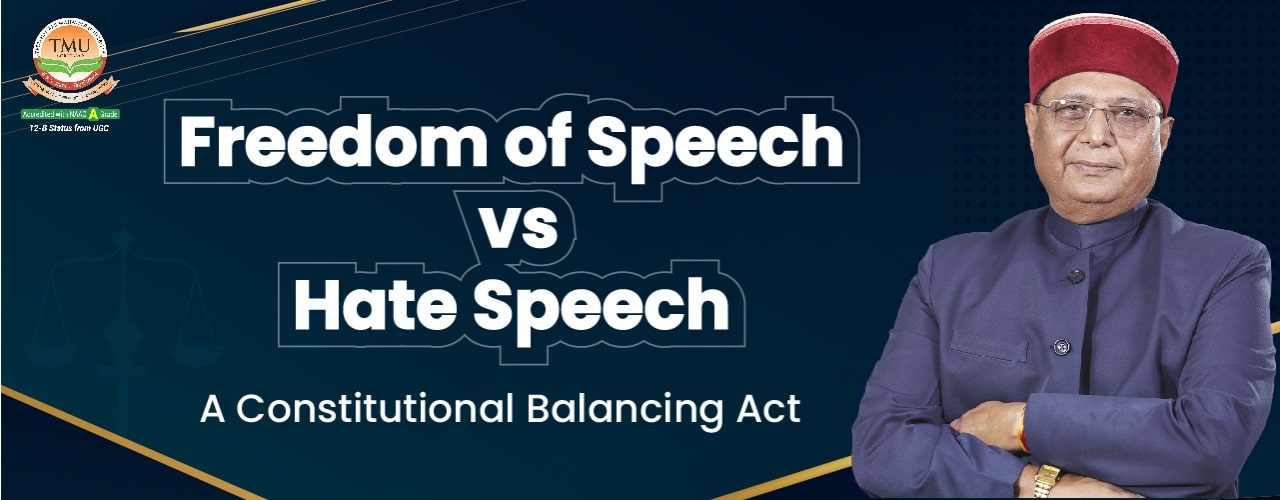Free Speech vs. Hate Speech: Drawing the Constitutional Line
Table of Contents
By Prof. (Dr.) Harbansh Dixit
Freedom of expression is a cornerstone of democracy. Article 19(1)(a) of the Indian Constitution guarantees the right to free speech and expression. However, this freedom is not absolute. It is subject to reasonable restrictions under Article 19(2) in the interest of public order, decency, morality, and security.
In recent times, hate speech and communal propaganda have blurred the line between legitimate dissent and dangerous incitement, posing a serious challenge to the values enshrined in the Constitution.
What the Constitution Protects—and What It Doesn’t
While the Constitution encourages open discourse, it does not permit speech that promotes hatred, enmity, or violence. The right to speak freely must not become a license to vilify religious communities, minorities, or marginalised groups.
Laws such as:
- Sections 153A and 295A of the IPC (promoting enmity and outraging religious feelings),
- Section 505 (statements conducing to public mischief),
...exist precisely to curb such abuse of freedom.
Yet enforcement remains selective, and hate speech often thrives under the protection of political influence or digital anonymity.
Teerthanker Mahaveer University
Apply for Admission
Click Here To Apply for Admission
Growing Normalisation of Hate
What once would have drawn public outrage is now routinely brushed off as “just an opinion”. Television debates, social media, and even public rallies have become platforms for toxic rhetoric that fractures social unity.
The normalisation of hate speech does not just violate the law—it threatens the secular and pluralistic ethos of India. When unchecked, it emboldens extremists and intimidates minority voices.
Judicial Observations: Warnings and Gaps
Indian courts have repeatedly condemned hate speech. The Supreme Court, in multiple judgments, has called upon the State to:
- Take prompt legal action,
- Prevent communal polarisation,
- And formulate guidelines for curbing inflammatory remarks.
However, implementation remains inconsistent. While some speech is swiftly prosecuted, other, more dangerous cases are ignored, leading to erosion of public trust in the legal system.
The Role of Citizens and Media
True freedom comes with responsibility. Media houses, influencers, and political leaders must recognize their power and avoid weaponising words for popularity or votes.
Likewise, citizens must become more vigilant, report hate, reject divisive narratives, and support platforms that promote respectful dialogue.
Conclusion: Free but Responsible
Free speech is the soul of democracy—but when it turns into hate, it poisons the very foundation it stands on. We must uphold a culture where criticism is encouraged, but hatred is not. A truly democratic society balances rights with respect and expression with empathy.
“In a civilised nation, words must heal, not hurt. Let freedom be the force that unites, not divides.”















